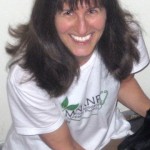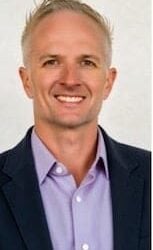Looking out for our Patients’ Health
Helen C. Healy, ND
Looking out for our patients’ health and welfare comes naturally to those of us who have taken the Naturopathic Oath at graduation. We are fortunate to have more time to spend with our patients than most other physicians. This is important, especially for our elderly patients, whose health concerns tend to be more complicated and who increasingly rely on others for help just to get through the day. Because we do not handpick the caregivers for our elderly patients, it is important to be aware of any warning signs of elder abuse and to become familiar with the resources in our states and communities.
According to the Administration on Aging,1 there are 4 common types of elder abuse: physical abuse (including sexual assault), emotional or psychological abuse, financial exploitation, and neglect or abandonment. The response to this type of maltreatment involves the combined efforts of social services and criminal justice officials.
Unfortunately, there have been some unpleasant instances of elder abuse that we have had to confront at my clinic. They would fall under the category of financial exploitation, but I would add that there was emotional and psychological abuse involved as well. Here are 2 cases that stand out for me. To honor the privacy of my patients and their families, the names have been changed.
What I’ve learned from this experience is multifold, including the following:
- how important it is to keep good records,
- to get signatures,
- to make a note of who is in the room with your patients,
- to use your intuition,
- to have an informed staff who know how to detect the warning signs of elder abuse,
- to know that you have social services in your community that are experienced in this area and are ready to help you and your patients, and
- that the police force and Federal Bureau of Investigation want to catch these criminals and put them away.
If you would like to know more about elder abuse and neglect, please go to the Web site HelpGuide.org.5 It has helpful information to support seniors, caregivers, and professionals.
Case 1
Eight years ago, Vivian, an 84-year-old retired RN, came to see me for tremors and what she termed “the appearance of old age.” Her allopathic doctor had put her on a β-blocker and then later an anticonvulsant for her tremors. Common adverse effects of these drugs include dizziness, lightheadedness, and excessive tiredness. Vivian described her disappointment with the medications as simply making her brain nonfunctioning, so she quit taking them.
She was health conscious, exercised (walked and stretched), took her vitamins and fish oil, and ate her fruits and vegetables. Her physical examination findings (blood pressure, heart rate and rhythm, weight, etc) were normal, except for the tremors in her lower jaw and hands. Mentally, she was clearheaded, with a good memory.
Vivian was divorced and had been living alone until someone from her church moved in as her personal care attendant to help her with transportation, shopping, and other activities of daily living. Her grown children lived out of state, but her granddaughter and grandson lived in town.
I made my recommendations to help her overall system, nerve function, muscle strength, and coordination. She paid for her visit and supplements with a personal check, and then she and her attendant/driver left the office.
Nothing seemed unusual or out of the ordinary at that time. In fact, Vivian’s attendant was a patient of mine who had been in the office 4 months earlier for posthysterectomy complications. The attendant’s fiancé said that one day he would like to see me to discuss some of his health issues as well but that he traveled a lot and it would have to wait.
Two months later, the fiancé, Ted, a 50-year-old historian and metaphysician, came to the office for his first appointment to discuss natural hormone treatments. He was born with an intersex condition, and while his family raised him female, he felt that he had a male spirit inside. Sometime after high school, he began synthetic testosterone treatments and lived his adult life as a male. Now, he sought me out for natural hormone treatments because of increasing severity of mood swings, sleep problems, and weight gain, as well as concern about the various toxic chemicals in the patches and gels.
I made my recommendations and included a referral to an allopathic doctor in town who was well versed in hormonal testing and appropriate dosing of prescription and bioidentical testosterone. He paid for his visit and supplements in cash. While his case was out of the ordinary for me, there were no red flags.
Plot Thickens
The following month was a whirlwind of activity. Almost every day for 2 weeks, I was visited or consulted over the telephone by Vivian, her personal attendant, other people who claimed to be Vivian’s attendants, and Ted. Vivian was having bladder control issues and was wetting her pants regularly. She was also having “fits of rage” at people telling her what to do.
My office manager, Becki, and I discussed how we were getting a bad feeling that Vivian was a victim of something more sinister than what initially appeared to be so charitable. Becki pointed out to me that the attendants were either having her put their charges on Ted’s tab, were using Vivian’s credit card to charge their supplements and office visits, or were paying with checks from Vivian’s trust account.
Check Forgery
She showed me the most recent check, and I immediately knew that it was a forged signature. Vivian had tremors, which her real signature exemplified; the signature on the check was a poor imitation of squeezed together letters. We knew that we had to do something. The first thing I did was to drive to the bank to verify that the signature was a forgery. It was, and the bank rightfully kept the check. Meanwhile, Becki contacted the relative named on the intake form, who got us in touch with Vivian’s daughter, Mary, in Arizona.
What Mary told us seemed right out of a made-for-TV movie. Members of a religious cult, led by Ted, had befriended Vivian and convinced her that on a spiritual level she was meant to turn away from the “evil” messages and concerns of her biological family and, instead, to listen to the warm guidance of the spirits and angels who spoke to Ted. When Mary expressed to her mother how worried she was that all these people were moving into her mother’s house and taking over, Vivian would get very angry and tell Mary to leave her alone. Mary said that they had convinced Vivian to sign over the house to them. It was heartbreaking.
Becki then called the Saint Paul Police Department (Saint Paul, Minnesota) to file a report. She also spoke to someone in Ramsey County (Minnesota) Adult Protective Services2 for more help.
Confrontation
As the heat was on, Ted attempted to deflect the situation by claiming that the problem was with my office manager and that she had made Vivian upset because now the bank was accusing Vivian of being a fraud. He defended himself by presenting to us a “legal document” signed by Vivian, himself, and 3 other attendants stating that they had Vivian’s “permission to have complete access” to her home and checkbook. He also said that he would be going out of town but would pay his group’s large outstanding balance with cash, plus make a donation to the naturopathic profession (how benevolent of him).
Indeed, Ted and his group came into the office together to keep any “malevolent forces” floating around the clinic from harming them as he presented me with the cash. I had other patients in the waiting room at that moment, who were being looked after by my office manager, so I knew that nothing bad would happen to them or to me.
We continued to cooperate with Adult Protective Services and the police department. Within a few months, we received a copy of a true power of attorney form from the State of Minnesota, with the signatures of 2 of Vivian’s children and 1 grandchild.
Unfortunately, Ted grabbed more of Vivian’s money and skipped town before the authorities could get enough evidence to convict him. Astoundingly, this sociopath is still out there lying and cheating people out of their money from California to Pennsylvania.
Case 2
Fourteen years ago, I had the distinct pleasure of meeting Gloria, an 81-year-old retired civil engineer and widow. She came to see me for her hypertension because she said that the prescription medications were causing her to wake up with a heavy feeling, making her tired, causing edema in one knee or the other, and (worst of all) making her incontinent.
She told her allopathic doctor that she would not take the drugs; instead, she began reading health books, shopping at health food stores, changing her eating habits, taking cardiovascular supportive nutrients, and walking. I take no credit for the direction she chose to go in to improve her condition. She came to me because she knew that something was missing.
I made my recommendations, and she followed them. Within 1 month, her systolic blood pressure had dropped 14 mm Hg, and her diastolic had dropped 10 mm Hg. Within 2 months, her systolic had dropped another 14 mm Hg, and her diastolic was at 80 mm Hg; she said that she had “no more problems with incontinence.”
I saw Gloria off and on for the next several years, as did her allopathic doctor. As she got older, she could not drive or take walks like she used to. Her allopathic doctor encouraged her to take a β-blocker, which she did, although she told me that she always felt better when taking her supplements. Socially, she lived with other seniors in an assisted-living housing community and enjoyed it very much.
Red Flags
When Gloria was 89, I received a letter from an attorney scolding me about giving a vulnerable adult medical advice and selling her supplements. This coincided with receiving some phone calls from a woman claiming to be Gloria’s caregiver, who told us that Gloria had dementia and not to sell her anything. When I telephoned Gloria, she was just as lucid as ever. She told me that she did not like what they were doing or saying about her, and then the line went dead. On another occasion, Gloria called the clinic to see if we had received money that was withdrawn from her account, but we had not.
The same attorney then wrote to me stating that Gloria’s physician had determined that she had dementia and was no longer able to handle her financial affairs. He told me not to contact Gloria or the caregiver.
My office manager, Becki, ignored his directive and called both the attorney and the caregiver to request a copy of a durable power of attorney, but they refused to furnish one. The attorney’s comment to Becki was “You’re just not gettin’ it.” Little did he know just how much foul play we were suspecting, including another social worker’s involvement in the scam.
We contacted our county’s Adult Protective Services to do some investigating, and Gloria telephoned the Minnesota Department of Human Services Office of Ombudsman for Long-Term Care3 (an ombudsman is an independent consumer advocate) to look into the situation. Needless to say, the physician had never said that Gloria had dementia, and she was rightfully angry with the attorney, saying that “He should feel ashamed of himself.”
Adult Protective Services contacted Lutheran Social Service of Minnesota,4 and they coordinated the legal action to obtain the conservatorship on Gloria’s behalf. Her funds were finally safe from the potential perpetrators.
She passed away at age 93 years. And the attorney? Well, he is no longer authorized to practice law in Minnesota.
 Helen C. Healy, ND received her bachelor’s degree in biopsychology from Vassar College, Arlington, New York, in 1977, and her ND degree from National College of Naturopathic Medicine, Portland, Oregon, in 1983. She is a founding member of the American Association of Naturopathic Physicians (AANP) and has served the profession in the capacities of AANP board member and speaker of the House of Delegates, president of the Minnesota Association of Naturopathic Physicians, and chair of the Registered Naturopathic Doctor Advisory Council to the Minnesota Board of Medical Practice.
Helen C. Healy, ND received her bachelor’s degree in biopsychology from Vassar College, Arlington, New York, in 1977, and her ND degree from National College of Naturopathic Medicine, Portland, Oregon, in 1983. She is a founding member of the American Association of Naturopathic Physicians (AANP) and has served the profession in the capacities of AANP board member and speaker of the House of Delegates, president of the Minnesota Association of Naturopathic Physicians, and chair of the Registered Naturopathic Doctor Advisory Council to the Minnesota Board of Medical Practice.
References
Administration on Aging. What is elder abuse? http://www.aoa.gov/AoARoot/AoA_Programs/Elder_Rights/EA_Prevention/whatIsEA.aspx. Accessed November 7, 2011.
Ramsey County. Adult Protective Services. http://www.co.ramsey.mn.us/hs/aped/AdultProtectiveServices.htm. Accessed November 8, 2011.
Minnesota Department of Human Services. Office of Ombudsman for Long-Term Care. http://www.dhs.state.mn.us/main/idcplg?IdcService=GET_DYNAMIC_CONVERSION&RevisionSelectionMethod=LatestReleased&dDocName=id_000269. Accessed November 8, 2011.
Lutheran Social Service of Minnesota. Services for older adults. http://www.lssmn.org/olderadult/. Accessed November 8, 2011.
HelpGuide.org. Elder abuse and neglect: warning signs, risk factors, prevention, and help. http://helpguide.org/mental/elder_abuse_physical_emotional_sexual_neglect.htm. Accessed November 7, 2011.





















